2019 BMW X5 vs. 2020 Mercedes-Benz GLE: Which Stalwart Luxury SUV Makes a Better Case?
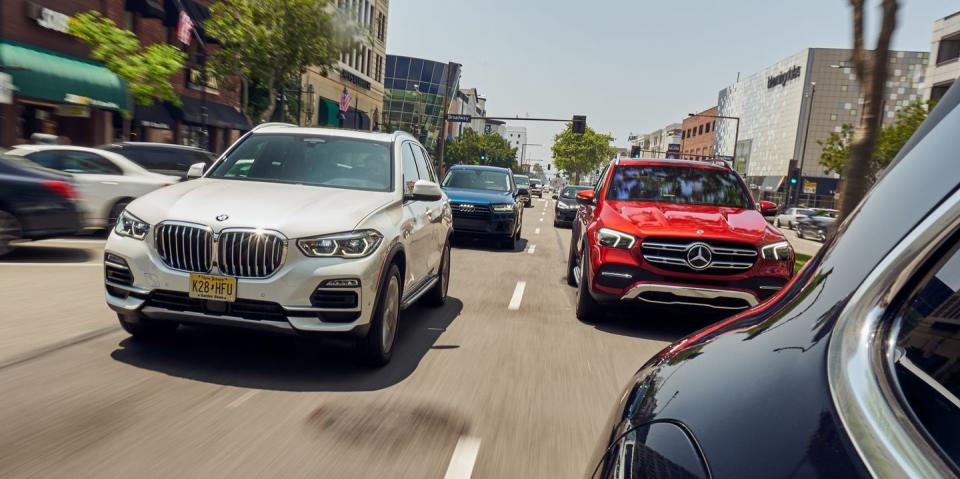

Despite their German heritage, the 2019 BMW X5 and the 2020 Mercedes-Benz GLE-class are all about the United States. They're tailored to American families and their lifestyles. They're made for road trips, Little League, and holiday barbecues. They're even built here, with the Bimmer assembled in Spartanburg, South Carolina, at the company's largest assembly plant on the globe. The 2020 Mercedes-Benz GLE also is produced in America's South, at an even larger facility in Tuscaloosa, Alabama, that pumps out about 250,000 vehicles a year. They're two of America's most popular luxury SUVs, and both have been completely redesigned over the past few months. But which one is better?
The Matchup
It's always interesting when two major automakers emerge from the drawing board with two vehicles as similarly sized as these. In almost every dimension, the latest X5 and GLE fall within a couple of inches of each other. Although the Mercedes looks the smaller of the two, both SUVs are 193.4 inches long, and both ride on wheelbases that measure just over 117 inches. Even their cargo capacities are practically identical.
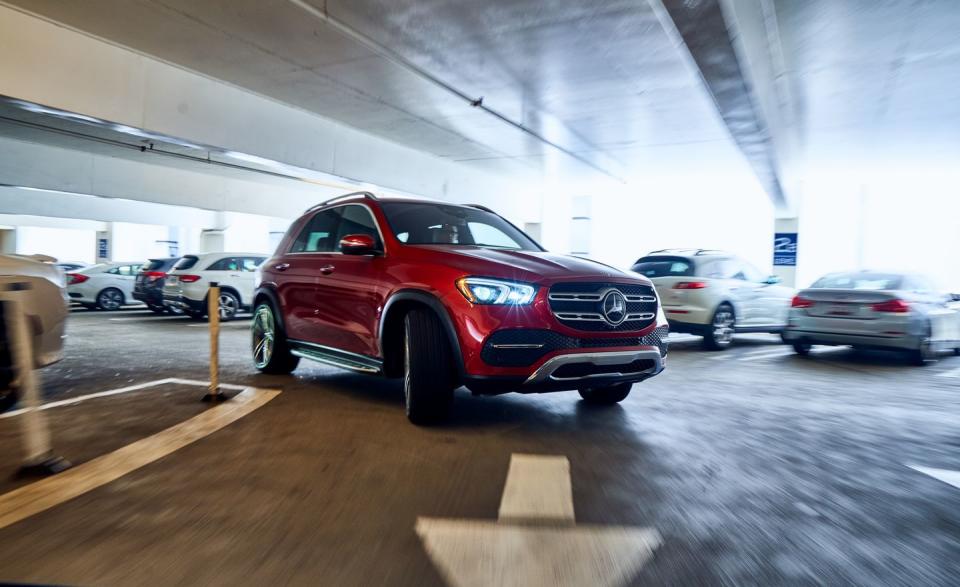
There are similarities under the hood as well. For this contest we skipped the base GLE350 model and went for the additional performance and features offered in the GLE450. Its turbocharged 3.0-liter inline-six makes 362 horsepower at 6100 rpm and matches up well with the BMW's standard 335-hp 3.0-liter inline-six, which also is boosted by a single turbocharger. Both SUVs feature all-wheel drive, both offer Sport driving modes, and both have paddle shifters on their steering wheels, although the BMW's ZF-sourced eight-speed automatic transmission is more responsive than Mercedes's in-house nine-speed unit.
They also cost about the same. The base price of the BMW X5 xDrive40i is $61,695, or $450 less than the Mercedes GLE450 4Matic's. Once stacked with options, however, our Mercedes test vehicle out-featured the BMW and commanded about $12K more, with an as-tested price of $85,120.
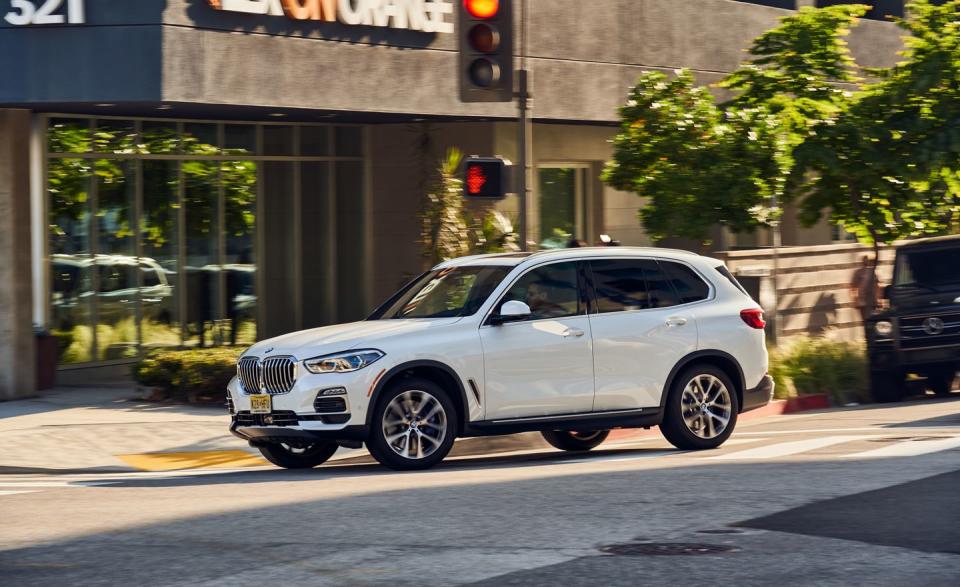
On the Road
Although they both seem very similar at first, the BMW and the Benz feel very different from behind the wheel, and the X5 handily outperforms the GLE, which we found surprising. The Mercedes has the stronger engine on paper, and our GLE450 showed up wearing much wider tires than the X5. Both SUVs wore all-season rubber, but the BMW's 275/45R-20 Pirellis were dwarfed by the Benz's staggered 21-inch Michelins, which measured 315/40R-21 in the rear. The Mercedes also feels smaller and lighter on the road than the BMW, but it actually weighs 265 pounds more than its rival.
While impressive in terms of performance when looked at alone, the GLE falls flat compared to the sportier BMW, which feels better balanced and offers more grip. The BMW also is easier to drive at its limits, with impressive stability from its optional $1000 air-spring suspension (steel coils are standard) that smoothly soaks up midcorner bumps without disrupting your driving line or your confidence in its roadholding. The Mercedes's optional air springs and adaptive dampers make it wallow around even in its firmest Dynamic setting. The Benz feels athletic and tossable at a moderately quick pace, but drive it harder and its dynamics start to splinter. The BMW's setup permits ample body roll as well, but a lack of grip isn't a concern, and its chassis is more predictable.
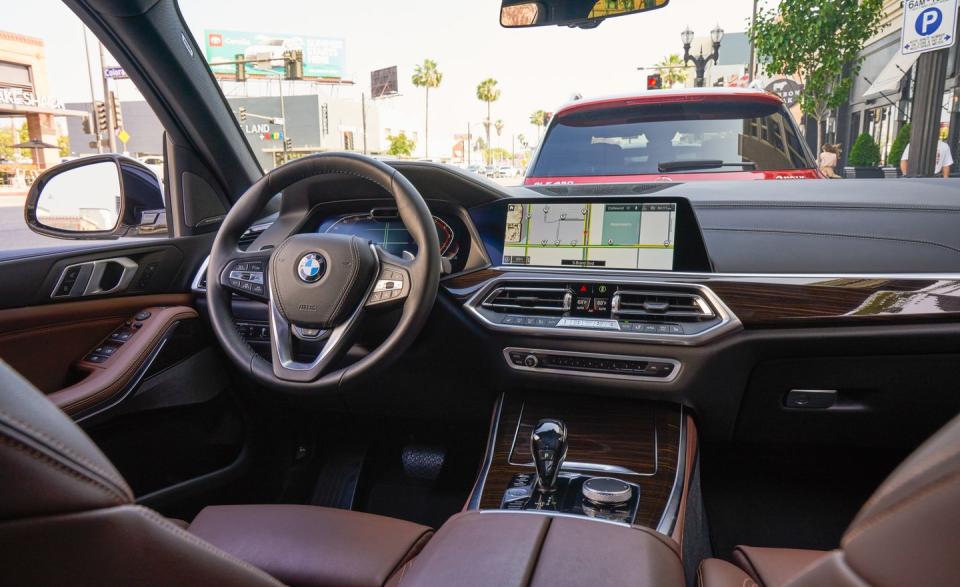
At the test track, the BMW generated a healthy 0.88 g of grip around the skidpad versus the fat-tired Mercedes's 0.84-g effort. Braking performance from 70 mph to zero is about the same at a little more than 170 feet, but on mountain roads the BMW's larger rotors are less prone to fade, and we prefer its firmer pedal feel. In the real world, the X5 also rides a bit more comfortably than the softer GLE, which isn't as smooth over larger impacts. The BMW offers a feeling of solidity that is missing in the Mercedes. The GLE also is left sucking wind at the dragstrip. With a run of 4.8 seconds, the X5 is a half-second quicker to 60 mph, and the gap widens to two full seconds at 120 mph. The BMW's engine also sounds sweeter and feels more inspired as it pulls to its 6800-rpm fuel cutoff with the eight-speed automatic clicking off firm, crisp gearchanges. Although the X5's 22-mpg EPA combined estimate is 1 mpg greater than the GLE's, both vehicles averaged the same 13 mpg during our 300-mile testing adventure in California.
The Inside View
Visually, the Mercedes is the looker both inside and out. It's the more attractive of the two at the curb, with broader shoulders and tighter overall proportions. The BMW's form features nice, albeit familiar, lines that make it look like a bloated X3, and its bucktooth grille is a bit gaudy.
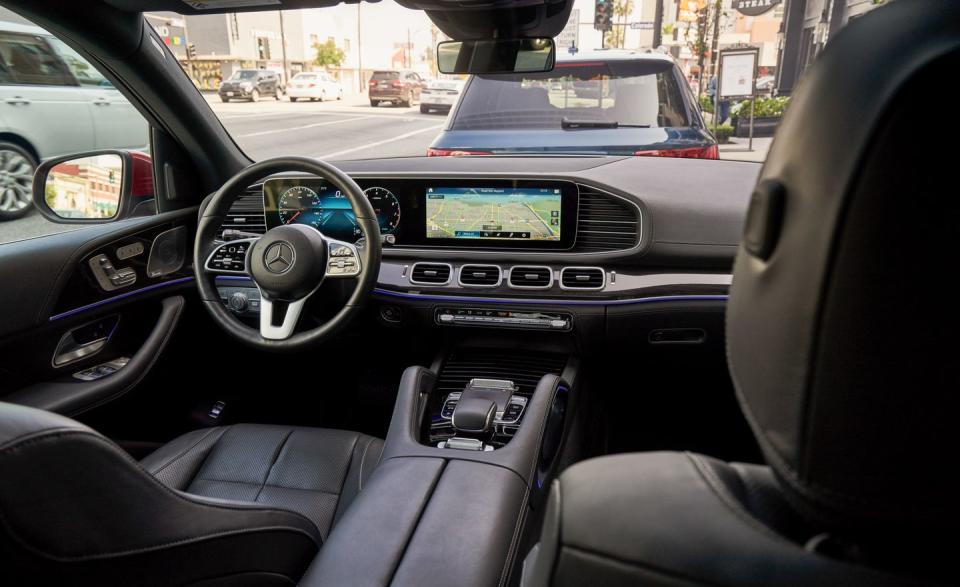
BMW also failed to break new ground with the X5's interior, but that's not such a bad thing. It isn't as visually striking as the interior of the GLE, but it is beautifully finished and far more functional, and its driving position is superior. The high cowl of the Mercedes and its low seating position feel sporty at first but prove less comfortable over time. Our BMW was shy of features compared to the Mercedes—for example, it's missing ventilated front seats—but its iDrive infotainment system is far less frustrating to acclimate to than Benz's new MBUX system, and its overall ergonomics feel more natural. The X5's only real gaffe is an overly designed instrument cluster with a tachometer that sweeps counterclockwise, but it's easy enough to get used to. The cabin of the Mercedes will surely impress passengers with its massive screens and fancy shapes and finishes, but the BMW is just easier to live with.
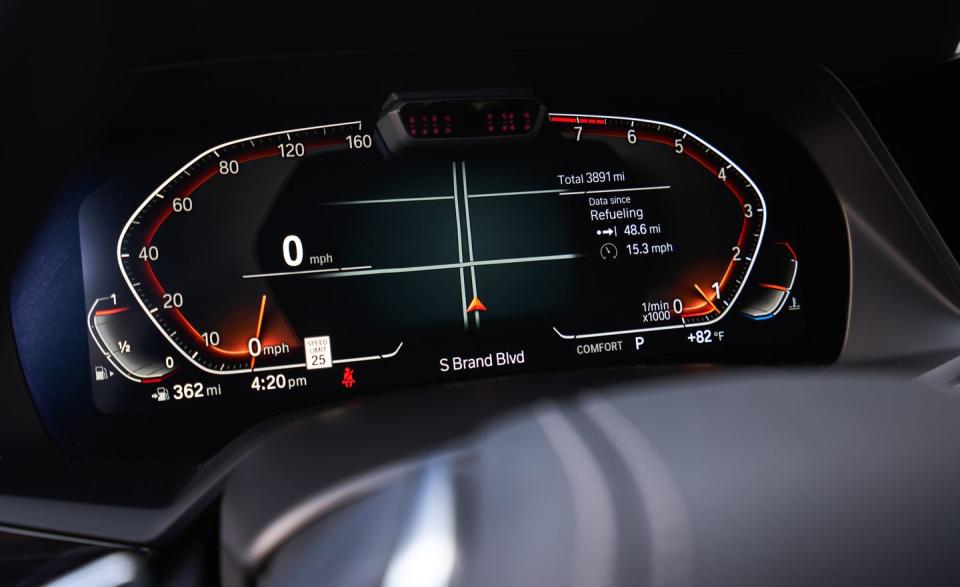
Jump in their back seats, however, and it's the Mercedes that delivers with considerably more legroom and a rear bench that isn't as upright. The X5's 34 cubic feet of cargo space is one cube more than the GLE's, yet both SUVs can accommodate 11 carry-on-size boxes behind their second rows (26 boxes with their rear seats folded), and both have the same lift-over height of 31 inches. While neither of our test vehicles featured the optional third row of seats, both the X5 and GLE offer them, for $2200 and $2100, respectively.
The Bottom Line
It's hard to deny the attractive presentation of the Mercedes GLE. Its exterior and interior designs are well ahead of the X5's in wow factor, and any good car salesperson will tell you that's nothing to sneeze at. And we'd rather sit in the Benz's back seat. But from behind the wheel and from a standpoint of daily functionality, it's the BMW that sets the standard. It's more comfortable, its interior and infotainment system are easier to use, its ride comfort is superior, and it outperforms the Mercedes in every conceivable way. Although we're impressed with the new Mercedes GLE, the latest BMW X5, bucktooth and all, just ate its lunch.
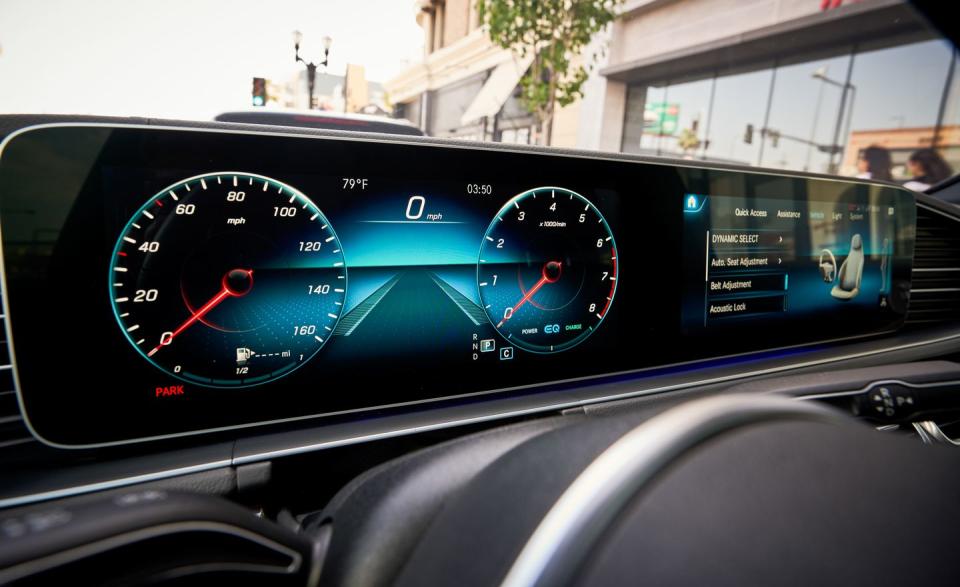
You Might Also Like

 Yahoo Autos
Yahoo Autos 